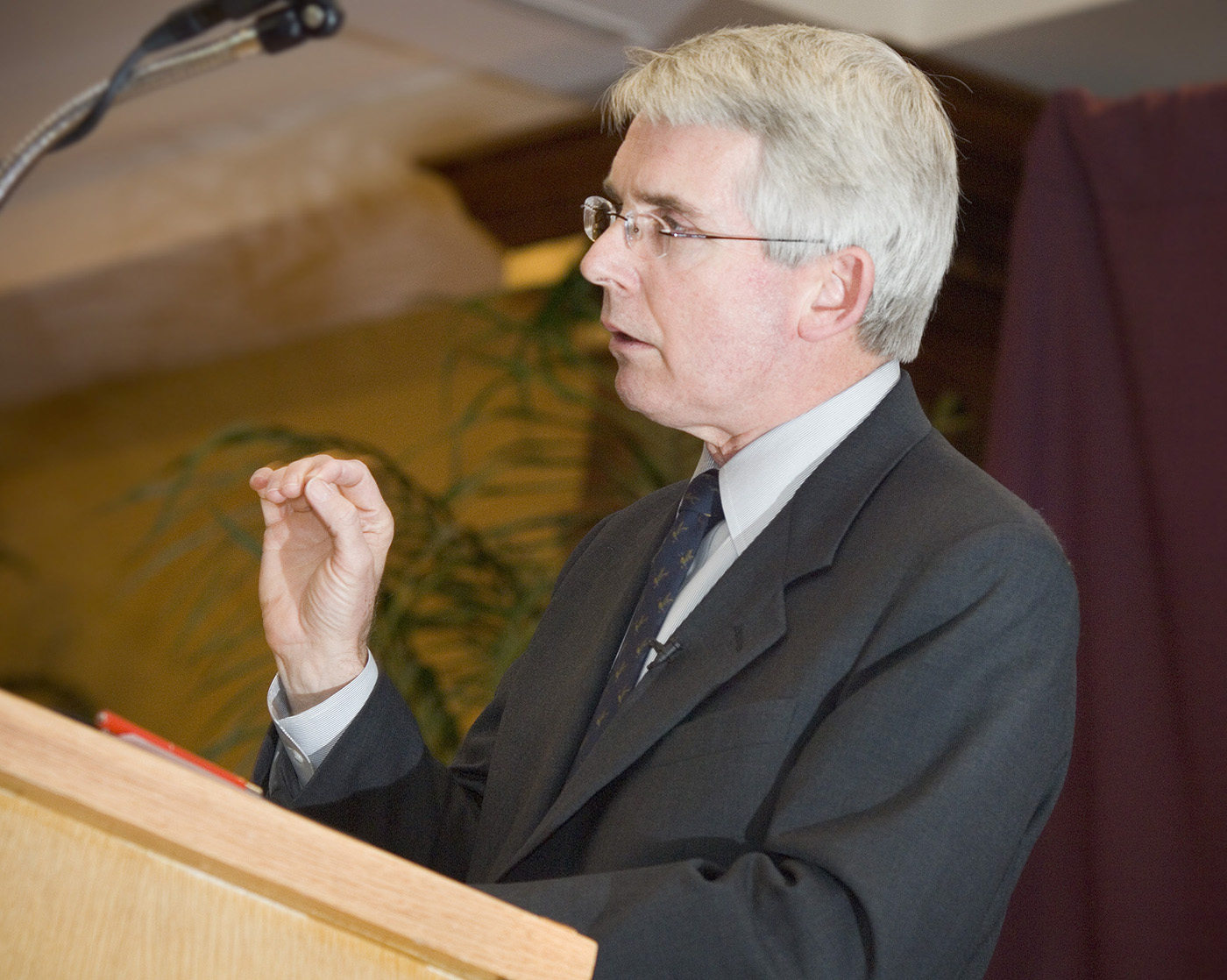Contact: Robbie Ward

Photo by: Megan Bean
STARKVILLE, Miss.--The executive for one of the country's largest railroad companies told a Mississippi State audience that experiences like Hurricane Katrina show leadership is often situational, sometimes requiring top leadership to get out of the way.
Charles "Wick" Moorman, chief executive officer, chairman and president of the Virginia-based Norfolk Southern Corp., discussed various aspects of corporate guidance with university students, faculty and staff during a campus program earlier this week. He was a guest of the Sonny Montgomery Chapter, Appalachian Leadership Honors Program.
After Katrina hit Louisiana and Mississippi in August 2005, railroad service was halted in the Central Gulf Coast area. Moorman said 14.8 miles of railroad tracks washed out, along with other devastation to the infrastructure including flooding of multiple railroad switching yards.
Norfolk Southern's lines stretch across much of the eastern part of the United States. The Fortune 500 company posted more than $9 billion in revenues in fiscal year 2006.
Moorman said the company spent two days cataloging damage to the system, then began putting teams together to begin the recovery process. Weather forces related to the hurricane also had twisted nearly five miles of tracks off their beds along the Lake Pontchartrain Bridge near New Orleans, he added.
"We pretty much had a bridge," he recalled. "We just didn't have anything on it."
Rebuilding the transportation system from Meridian to the New Orleans area involved providing accommodations for about 370 workers and serving nearly 900 meals daily. Moorman, a Hattiesburg native who received a master's degree in business administration from Harvard University, said the experience demonstrated that senior management should take different roles in different situations.
He said while some issues require direct involvement for top leaders, others involve standing back and supporting people at the front lines of work.
After providing sufficient resources employees needed to rebuild rail lines, top leaders at Norfolk Southern didn't interfere with mid-level managers and other employees in charge of recovering from the hurricane.
"Different problems require different types of leadership at different times," Moorman observed. "We were cheerleaders."
He also offered a number of insights to students in the leadership program, part of the MSU's Leadership Continuum that includes special training opportunities from high school through graduate school levels. MSU President Robert H. "Doc" Foglesong, a retired four-star Air Force general, established the programs shortly after becoming the institution's chief executive last year.
Moorman urged future leaders to not be afraid to start from the bottom in a company and work their way toward the top of the chain of command. He also suggested finding jobs at companies that actively work to develop leaders from within their organizational structures.
And, while young leaders may develop that skill by associating with companies recognizing and promoting its importance, the process must begin with self-awareness, he added.
"Everyone needs to figure out how much of a leadership role they want to play; it's all right to take none," Moorman told those in attendance.
He concluded by reminding them that leadership is more than standing in front of a group and taking credit for the good; it's often accepting responsibility for other people. As individuals learn to accept more responsible leadership positions, they increase their chances of failure.
"If you're not failing at something at some point, you're not really leading," Moorman said.
NEWS EDITORS/DIRECTORS: For more information on the Montgomery/Appalachian Leadership Honors Program, contact director Cade Smith at 662-325-3611 or cade@saffairs.msstate.edu.
For more information about Mississippi State University, see http://www.msstate.edu/.